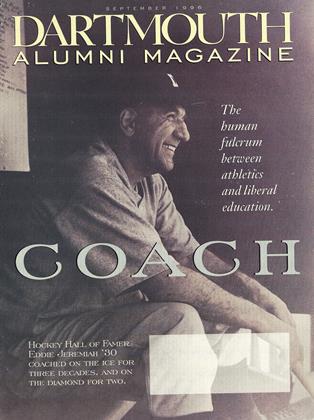Tony Lupien
Baseball (1957-1977)
Students went on strike in the spring of 1970, the year we went to the college world series. Most of us who SIS/ played on that team will always remember the game with Navy, at home. We came from behind to win it at a critical part of the season. The game was played right when the academic session sort of ground to a halt. It was a politically charged time, a lot of unrest. The Naval Academy, obviously, was viewed as part of the military establishment. Rumors were flying around that we would make a statement by not playing the game, that students might try to disrupt the game. Tony made it clear that it was our responsibility to play the game, because that's what we had signed up to do. And that if any incident occurred it was our responsibility to help protect the Navy players from any threat. We had made a commitment to both ourselves and our opponents.
Fortunately, nothing transpired. Yet that incident, as much as any other, represents what Tony stood for. At a time when traditional values were being challenged at the institution and throughout the country, Tony championed the importance of things like responsibility and integrity. We had to wear coats and ties on the road, because he felt the College's image was also our responsibility. He insisted on playing our spring schedule in the mid-Atlantic states, even though other teams had started flying to Florida, because he honored the relationships we'd built over the years with schools like Old Dominion and North Carolina State. He thought the long bus trips would teach us about living together, and that the cool weather better prepared us for playing back in New England. Tony stated these and other opinions openly and vigorously. That was one of his strengths and something you learned to appreciate.
Part of his role as a teacher was advocating what he thought was right. Players may have disagreed with Tony at times over things like wearing the Indian on the uniform or his unwilingness to switch over to aluminum bats. But we respected him for taking stands on controversial issues. Nobody ever questioned his integrity, or his ability to articulate his way of playing baseball.
Coaching is very much a teaching profession. I think Tony understood that. It was part of his responsibility to teach lessons, to convey a sense of the broader world. He had played professionally. He taught us more than fundamentals. He taught us the nuances of the game. And it's in the nuances that great teachers always distinguish themselves.
"Tony championed the importance ofthings likeresponsibilityand integrity."
 View Full Issue
View Full Issue
More From This Issue
-
 Feature
FeatureThe Language of Innocence
September 1996 By KATE COHEN '92 -
 Cover Story
Cover StoryBAKER WAS THE BACKDROP
September 1996 -
 Feature
FeatureStaying Clear
September 1996 By Jeanet Hardigg Irwin '80 -
 Feature
FeaturePassion
September 1996 By Fiona Bayly '89 -
 Feature
FeatureConfidence
September 1996 By Paid Tsongas '62 -
 Feature
FeatureFaith
September 1996 By Seward, "Pat" Brewster '50
Features
-
 Feature
FeatureTHE CENTER COMES ALIVE
DECEMBER 1962 -
 Feature
FeatureVox Clamantis 1968
JUNE 1968 By Chris Kern '69 -
 Feature
FeatureSCORE!
JAN./FEB. 1980 By James Epperson -
 COVER STORY
COVER STORYEarth Mother
JAnuAry | FebruAry By KEVIN NANCE -
 Feature
FeatureAfter El Chapo
SEPTEMBER | OCTOBER 2020 By RICHARD BABCOCK ’69 -
 Cover Story
Cover StoryIf I Could Do It Over
December 1987 By Timothy J. Burger '88


